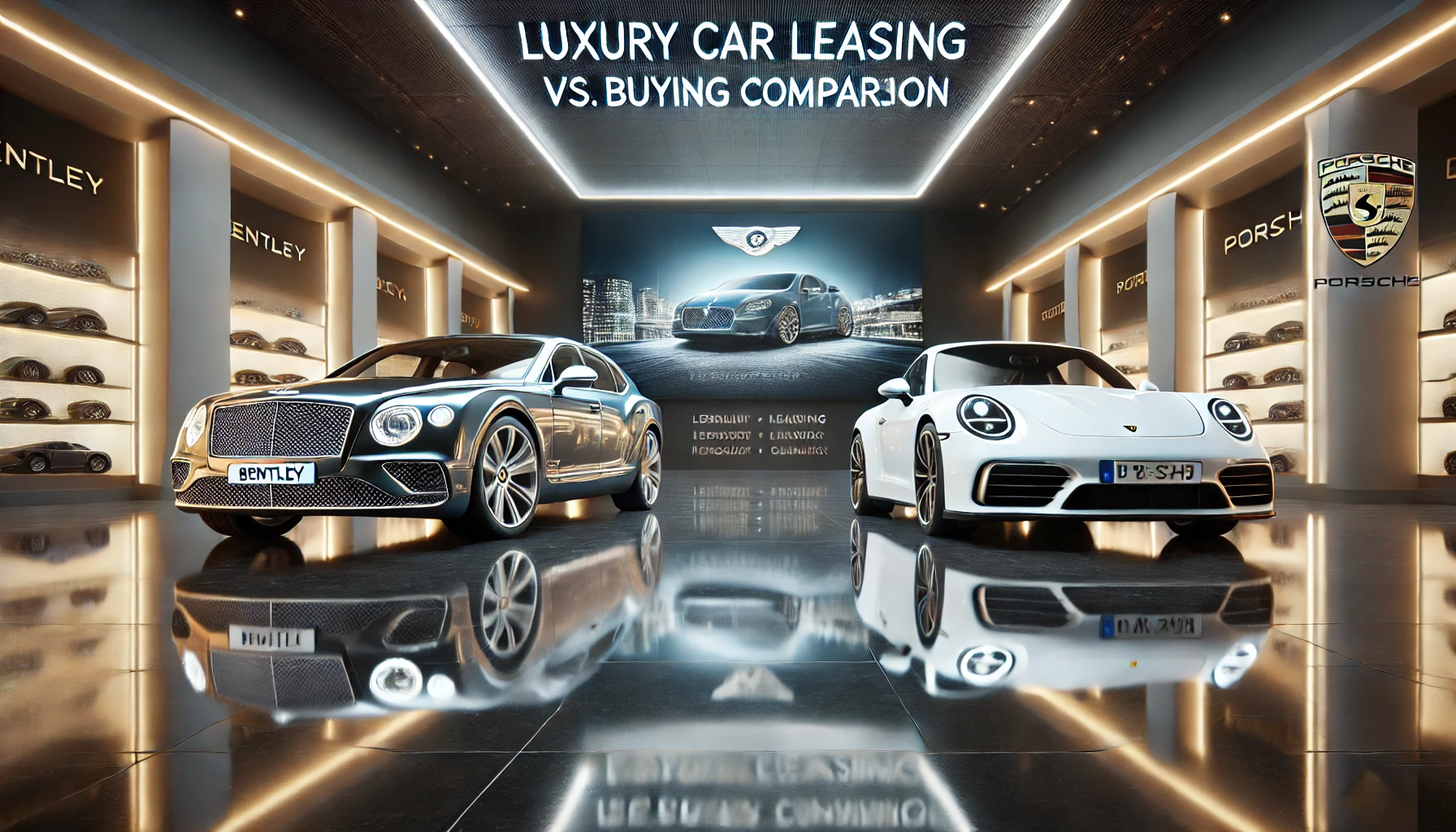A luxury car is more than just a mode of transportation—it’s a statement of style, success, and sophistication. But when it comes to acquiring a high-end vehicle, should you lease or buy? The decision can significantly impact your finances and lifestyle. Understanding the pros and cons of each option will help you determine the best route for your needs.
Understanding Luxury Car Leasing
Leasing a luxury car allows you to drive a high-end vehicle without the full financial commitment of ownership. In a lease agreement, you pay for the depreciation of the car over a fixed term—usually 24 to 36 months—rather than the full purchase price. At the end of the lease, you return the vehicle or have the option to buy it at its residual value.
Key Benefits of Leasing
- Lower monthly payments compared to buying
- Ability to drive a new luxury car every few years
- Warranty coverage throughout the lease term
- No concerns about resale or depreciation
Potential Drawbacks
- Strict mileage limits (usually 10,000–15,000 miles per year)
- Penalties for excessive wear and tear
- No equity or ownership benefits
- High lease-end costs if you decide to buy the car
Understanding Luxury Car Buying
Buying a luxury car means you either pay for it in full or finance it with a loan. Unlike leasing, you own the vehicle outright and can drive it indefinitely without restrictions.
Key Benefits of Buying
- No mileage limitations or lease-end fees
- Freedom to customize and modify the car
- Long-term cost savings after the loan is paid off
- Ability to sell or trade the car at any time
Potential Drawbacks
- Higher monthly payments compared to leasing
- Depreciation risk—luxury cars lose value over time
- Out-of-pocket repair costs after the warranty expires
Cost Comparison: Leasing vs. Buying
| Expense | Leasing | Buying |
|---|---|---|
| Down Payment | Low or none | Higher upfront cost |
| Monthly Payment | Lower | Higher due to full loan repayment |
| Long-Term Cost | More expensive over time | Cheaper if you keep the car long-term |
| Resale Value | No benefit | Can sell or trade-in later |
Leasing is more affordable in the short term, while buying saves money in the long run.
Depreciation Considerations
Luxury cars tend to lose value quickly. With leasing, depreciation is not your concern—the leasing company absorbs the loss. However, if you buy, depreciation can significantly impact your car’s resale value.
Mileage and Usage Limitations
Leasing restricts how many miles you can drive annually, usually 10,000 to 15,000 miles. Exceeding the limit results in fees. Buying, on the other hand, gives you unlimited mileage freedom.
Maintenance and Repairs
Leased luxury cars often remain under warranty, reducing maintenance costs. When you own, however, you’re responsible for repairs after the warranty period.
Customization and Ownership Rights
Leases restrict modifications—no custom paint jobs or performance upgrades. Buying allows complete freedom to personalize your luxury vehicle.
Flexibility and Convenience
Leasing offers the flexibility to switch cars frequently, perfect for those who always want the latest model. Buying locks you into long-term ownership, which might not be ideal if your lifestyle changes.
Equity and Investment Value
Buying a luxury car allows you to build equity, which can be valuable when selling or trading in. Leasing does not provide any ownership benefits.
FAQs
Is leasing cheaper than buying in the long run?
No, leasing is often more expensive over time because you never gain ownership.
Can I buy my leased luxury car at the end of the lease?
Yes, most leases offer a buyout option, but it may not always be financially beneficial.
Which option is better for business owners?
Leasing may be advantageous due to potential tax deductions.
Do lease payments go towards ownership?
No, lease payments only cover the depreciation and fees.
What happens if I exceed my lease mileage limit?
You will be charged a per-mile fee, which can be costly.
Can I lease a used luxury car?
Some manufacturers offer certified pre-owned leases, but options are limited.
You Can Also Read : The Best Retirement Plans for Airline and Private Pilots
Choosing between leasing and buying a luxury car depends on your financial goals, lifestyle, and long-term plans. Leasing is ideal for those who want lower monthly payments and the latest models, while buying suits individuals who prioritize ownership and long-term savings. Assess your needs carefully to make the best decision.
